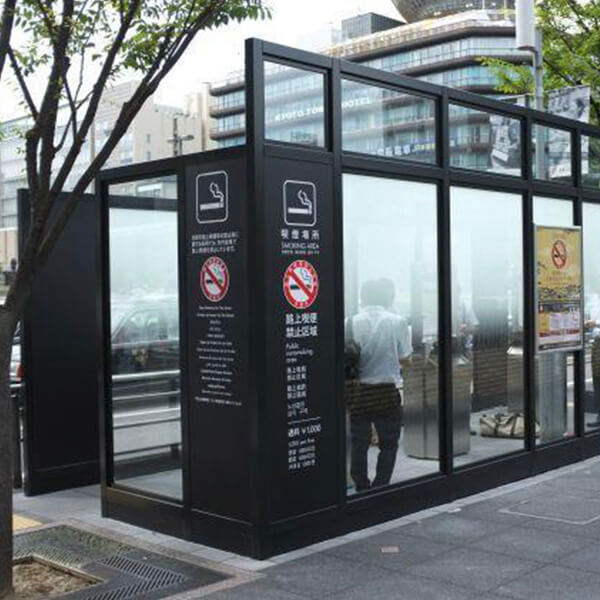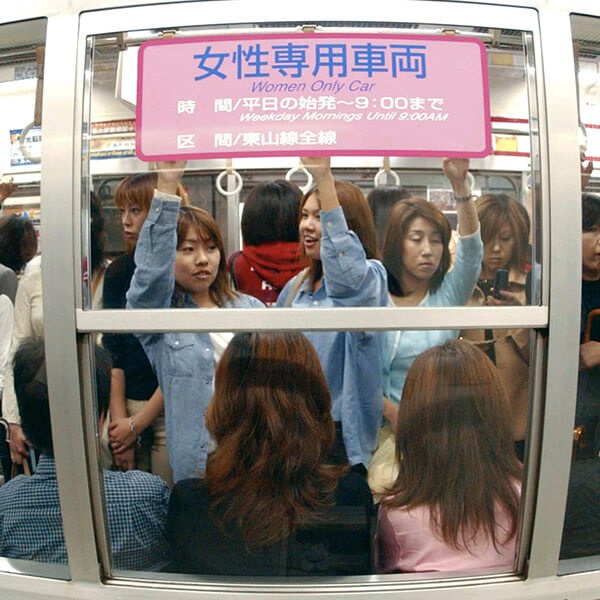Things Not to Do in Japan 🙅♀️ Guide to Japanese Etiquette
Important Things Not To Do in Japan
What are some essential things NOT to do in Japan?

There is actually a long list of things not to do in Japan that should be discussed, which although seemingly daunting, is great fun to learn.
Don’t fret.
We’ve thought about the extensive list of things not to do in Japan and condensed it down into a more sizeable chunk of don’ts.
We’ve also created a list of things you really really shouldn’t do in Japan, and life will be a lot more comfortable for both you and Japanese people if you follow them!
Should I Watch Out For Things I Do In Japan?
Yes! Oh definitely, yes.
In a country that places good etiquette highly and has many rules that many Western countries not do, it is imperative to understand what you should and should not do in Japan.
Whether you don’t want to stand out as a tourist, or you’re looking to make a good impression with new friends, the following list of things you REALLY shouldn’t do in Japan is sure to get you by and make sure your time in Japan is smooth.
No one wants to be ‘that tourist’ that makes everyone rolls their eyes!
DO NOT DO THESE THINGS IN JAPAN
Things Not To Do In Japan – Bags On Your Back on Public Transport
Things Not To Do In Japan – Don’t Wear Shoes Indoors
Things Not To Do In Japan – Don’t Walk & Smoke
Things Not To Do In Japan – Don’t Tip
Things Not To Do In Japan – Don’t Eat on Public Transport
Things Not To Do In Japan – Don’t Change Menu Items
Things Not To Do In Japan – BOYS | DON’T Go Into That Ladies Carriage
Things Not To Do In Japan – Don’t Be Late
GENERAL JAPANESE ETIQUETTE
Japanese Etiquette – Got a Tattoo?
Japanese Etiquette – Onsen Etiquette
Japanese Etiquette – Carry Your Rubbish
Japanese Etiquette – Recycle
Japanese Etiquette – Use Cash
Things Not To Do In Japan – FAQ’s

Don’t Wear a Bag On Your Back on Public Transport
You’ve seen the videos. Japan in rush hour is NOT pleasant.
Those videos you see of people being pushed onto the train?
Yeah, that is pretty much what happens. Every little bit of space matters and the backpack on your back is going to get in the way of a LOT of people.
In Japan, it is courtesy to put your backpack or rucksack down by your legs or feet when you’re standing up on public transport – especially so when it’s busy, but also when it’s pretty empty, too.
Or else you might accidentally hit those around you!
Don’t Wear Shoes Indoors
In Japan, most houses have a “threshold” before the main entrance.
This is usually a tiny area you walk in where shoes are kept, which then steps up into the main room or corridor.
Your shoes mustn’t cross this threshold. You will most likely be offered slippers.
If not, your host is making a bit of a social faux pas themselves!
Nevertheless, a big thing not to do in Japan – wearing shoes indoors!
You might also find that some other places such as offices or establishments such as a gym require you to change into slippers upon entering, too.

Basic Phrases in Japanese // Learn 32 Essential Phrases (With Flashcards & FREE Quiz)
Basic Phrases in Japanese // Learn these phrases to make your first steps when learning Japanese. We teach you how to get by when speaking basic Japanese.
Don’t Smoke While Walking
Most buildings, restaurants and cafes have a dedicated smoking room. You won’t see the typical scene of smokers crowding around a trash can in the street.
So can you smoke in front of a building? Absolutely not.
Japan has designated smoking areas outside, and you can’t smoke anywhere else on the street apart from these areas. Luckily if you are a smoker, you always know there will be one outside a convenience store.
Smoking whilst walking is an absolute no-no in Japan.
There are even signs up suggesting smoking when walking could result in a child having their eye poked out by a lit cigarette.
Not sure if that’s ever happened. Nevertheless, an important thing not to do in Japan!

Don’t Tip!
You don’t need to tip in Japan. It might even be considered strange unless you’re at a very touristy restaurant or on a tour.
It’s absolutely not common practice in Japan to tip, and if you do, you might just make the person feel uncomfortable.
They won’t know what to do and may attempt to give it back to you, causing a very awkward exchange unpleasant for all involved.
You may feel odd not giving a tip at the end of your meal, but a better way to show your appreciation is to thank your server.
The tipping culture is non-existent in Japan, and you will probably cause more offence trying to give a tip than not tipping at all.

Japanese Loanwords 🤩 41 You Should Learn Straight Away
Japanese Loanwords are actually a great way to boost language learning motivation because it makes you realise you can still find similarities with English!
Don’t Eat on Public Transport
Eating on public transport is a no-no.
Eating on a train in other countries might be acceptable (well, maybe not entirely acceptable, but people do it anyway) but, it’s absolutely not OK to do this on a train or bus in Japan.
The exception is a train going in-between cities that also serves food, such as the Shinkansen bullet train.
And whilst we’re at it, another thing not to do in Japan is walking and eating simultaneously.
I always used to eat a sandwich when rushing to work or university in the afternoon – another thing highly frowned upon in Japan.
Stop. Eat your sandwich. Smoke your cigarette. Then start walking again.
Don’t Change Menu Items
As a vegan with a nut allergy and a Brit who doesn’t like to offend, this one was tricky for me.

In the end, I often just gave up on dining out and stuck to beers instead!
Changing a menu item might be something you could get away with in some places, especially if it’s due to allergies, but generally, a chef will take offence if you try to change their dish.
Want to swap in a salad for fries? Change a particular sauce?
You might have a waitress that comes back and tells you it’s not possible, even if there is salad on the menu for other dishes.
To a chef in Japan, his dish is his creation, and if he thinks you’re about to ruin his dish, he won’t make the change.
It doesn’t matter what you do and don’t like – if they believe it will make the dish less tasty, they won’t make it.
Boys – DON’T Go Into That Ladies Carriage
One of my favourite things in Japan also carries a dark tone when you think about the need for it.
In Japan, many of the trains have a “ladies only” carriage.
There is incredibly obviously signposted BEFORE you get onto the train, and if that’s not enough, the carriage is often bright pink.
So you really can’t accidentally sit in there.

They’re called ladies carriages for a reason; they’re for ladies only, and boys are not allowed.
Sadly there were numerous cases of unwanted touching on public transport, so Japan took this initiative to combat it.
Whilst it is an admirable initiative and makes the carriage pretty cute, I found that it doesn’t deter the super creepy guys.
In fact, I have often been in there when men have been walking up and down.
So if you’re a boy, this is a big no-no in terms of things not to do in Japan.
Don’t Be Late
The Japanese take punctuality very seriously.
They will appreciate it if you’re 10 minutes early but certainly won’t like it if you’re 10 minutes late.
Japanese Etiquette 101
Now let’s move onto some Japanese Etiquette.
This will still provide you with some helpful dos and don’ts for your time in Japan.
The first question we have for you is:
Got Tattoos?
Great! But don’t show them.
Of things not to do in Japan, this is one of the top ones, especially at an onsen (see below).
Having a tattoo in Japan is commonly associated with the Yakuza, the Japanese mafia.
Although younger people are getting tattoos these days, they’re still pretty taboo. They take it seriously.
And once they’ve seen it, that’s it. You might get kicked out of the onsen of your gym. I was banned from my yoga class at the gym because of my back tattoo.
There are some tattoo-friendly onsens, so make sure to look that up beforehand if you’re covered in tattoos. Otherwise, you won’t be allowed to enter, or you’ll risk causing some offence.

Japanese vs Korean vs Chinese | Which Is Really The Hardest?
Thinking about learning an East Asian language and don’t know which one to go for? Japanese vs Korean vs Chinese – it’s a tough choice right?!
Understand The Onsen Etiquette
Don’t go into an onsen unprepared.
Onsens are complicated places for a first-timer, and you must make sure you are aware of all the rules.
An onsen is a bathing house in Japan. Usually, they are communal bathing areas separated into men and women.
There are typically different temperature baths and a spot to get a shower and change your clothes. Sometimes there are areas to drink tea, eat something or get a massage.
So what are the rules?
Firstly you can take a look at this video guide
The two main points to remember are:
ONE: Don’t go into the bathing area with a bathing suit. Confused? Nope, we didn’t make a mistake. It would be best if you were entirely naked when entering the bathing area.
Think you can get away with it because you’re foreign? Don’t feel comfortable naked? Then, unfortunately, you can’t go.
This is a big thing not to do in Japan. Going in clothed is seen as very unclean, and it won’t be respected. Just go with the flow!
No one is looking at you, and no one cares, everyone has the same bits!
TWO: DON’T rush straight into the onsen. After you take off your clothes and are stripped down completely naked, you may feel like all you want to do is run right into the bath and hide in the water. Well, nope.
You’re not done yet.
You need to shower first, which of course, exposes you and makes you more vulnerable. But it’s all part of the process and what keeps the public baths clean and hygienic.
Carry Your Rubbish Around
In Japan, there are very few bins/trash cans.
So don’t count on seeing bins pretty much anywhere. Make sure you carry that rubbish around with you!
Most people in Japan carry their rubbish around with them all day until they get home.
This is partly due to the lack of bins and partly due to the complicated recycling system in Japan, which we are about to discover!

27 Country Names in Japanese 🌍 Your Complete Guide
Countries in Japanese – Interested in learning some country names in Japanese? Some actually translate and sound very similar to English, come and see!
RECYCLE!
The recycling system in Japan is complicated. But what’s worse is not recycling.
An important thing not to do in Japan is mixing your rubbish or just throwing everything into one bin.
The Japanese are serious about recycling, and there are hefty penalties if you don’t recycle.
You might even find security cameras up around the recycling bins to make sure that you’re putting the right items into the proper bins, and if you’re a repeat offender, you will get caught.
Use Cash As Much As Possible
Yes, and no. It is essential in Japan NOT to rely on credit cards.
Japan is still a highly cash-based society, so most people just bring around cash. It’s also pretty safe!
Some establishments won’t accept your card.
Additionally a lot of ATMs won’t accept foreign cards, and sometimes it’s hard to find one. So never let yourself be without cash!
Quite a contrast from China’s almost cashless society!
So there we have it!
A practical guide of things you should NOT do in Japan is to make sure you don’t cause offence or stand out as a newbie tourist.
Following these rules and understanding, Japanese culture will really be appreciated by Japanese people, a proud nation that loves following rules.
If this sort of topic interests you then why not check out our guide to the culture shock of China as well. You’ll be fascinated at the some of the rules and superstitions!
Things Not To Do in Japan // FAQ’s
Is it rude to eat with a fork in Japan?
It’s not rude to use a fork in Japan, however, chopsticks are the preferred method of eating. If you find yourself unable to use chopsticks and you start stabbing food, definitely use a fork as this is considered to be rude in Japan.
Is tipping rude in Japan?
Tipping is not part of Japanese culture. You’ll probably find yourself in an awkward situation if you try to tip as most Japanese people would politely decline.
What are considered bad manners in Japan?
Things like smoking outside a designated smokers area, blowing your nose at the table, burping or chewing loudly are all frowned upon in Japan.
What are some strange Japanese laws I should know about?
1. Don’t put ice cream in mailboxes, punishable by up to 5 years prison and fines.
2. Don’t splash pedestrians when driving, fines of $65 USD.
3. Don’t expose your thighs or buttocks in public, punishable for up to 29 days in jail.
Want More From LTL?
WANT TO LEARN JAPANESE? Check out our online Japanese courses here.
We offer a 7-day free trial to all new students where you can study 24/7.
What about studying Japanese in Japan instead? We’ve got your back. Our Japanese courses in Tokyo can either be taken in small groups of no more than 5 students or individually for a more tailored experience.
We even offer incredible homestay experiences in Tokyo as well.
Come and be a part of this amazing community.









6 comments
I've been to Japan and can vouch for 100% of this blog!
Glad we hit the nail on the head Wes!
A very polite nation, never litter there!
Wonderfully polite!
Chopsticks in the rice is a NO! I learnt the hard way!
Oh no!!